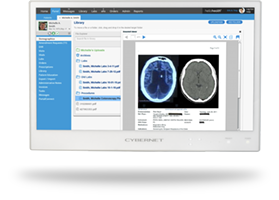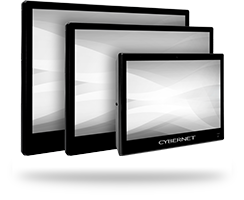Computer hardware and software manufacturers are always looking for new ways to protect the devices and programs that they offer. In an ongoing effort to stay ahead of cybercriminals, many are turning to Trusted Platform Module (TPM) chips to bring advanced cryptographic protection to data.
How TPM Chips Use Cryptography to Secure Data
What is a TPM chip? A TPM is a discrete chip on a computer’s motherboard that generates and stores cryptographic keys. Computer security software programs and services use TPM chips and their cryptographic keys to confirm that the operating system and firmware are still secure and verify that they haven’t been tampered with. While virtual and software-based TPMs also exist, they are not as secure as a physical chip.
To understand the value of TPM chips, we need to discuss cryptography briefly. Also known as cryptology, cryptography is the process of hiding information via codes, ensuring that only an authorized party with a decoding cipher can access that information. Cryptography has existed for almost as long as the concept of a written language, ranging from simple letter-switch ciphers to the famous Enigma cipher of World War 2.
The advent of computers has greatly expanded the possibilities for cryptography. Computer science and mathematics enable cryptographers to create incredibly complex codes that are nearly impossible to break, but still decipherable with the correct key. Encrypted information, such as a patient’s medical records or a business’s financial records, will appear as a jumble of meaningless numbers and letters while encrypted, protecting that sensitive data from prying eyes.
A TPM’s keys are generated via algorithms like Rivest-Shamir-Adleman (RSA) and Advanced Encryption Standard (AES), which are chosen for their extreme difficulty to crack. During a computer’s boot sequence, the TPM will supply a unique cryptographic key, which matches another key stored on the computer’s data storage to decrypt it. If the keys are not compatible due to tampering, the data becomes inaccessible. The current iteration of TPM technology, TPM 2.0, offers superior cryptographic algorithms and support for new types of algorithms.
In addition to their role during the boot-up sequence, TPMs are also used to handle encrypted email messages and maintain website SSL certificates. An SSL certificate enables computers to use SSL/TLS encryption, providing a more secure way to access the Internet.
Industry Use Cases for TPM Chips
There are numerous sectors that desire the security and confidentiality that TPM chips offer. Whether this means protecting patient privacy or keeping intellectual property secret, TPM chips will only see more and more use, especially in a world where cyberattacks inflicted $11.5 trillion in damage in 2023 alone.
TPMs in Healthcare Computers
Healthcare is one of the most commonly targeted sectors for cyberattacks, with 444 ransomware threats and data breaches reported in 2024. These attacks are often aimed at obtaining patient health records, contact information, and financial details. A medical computer equipped with a TPM chip can keep patient data encrypted and secure against unauthorized access. TPM chips can also monitor incoming data and prevent tampering, which is extremely useful for applications like remote monitoring, which is highly dependent on a secure transmission. Covering these aspects is absolutely critical for data security in healthcare.
TPMs in Industrial Computers
In industrial applications, TPMs are primarily used to secure passwords and data saved on industrial panel PCs. This is especially important in remote work environments where computers are not under constant surveillance. In these areas, criminals may try to access the computer by uploading malicious software via the computer’s I/O ports. A TPM can detect this kind of tampering when it interacts with the computer’s storage and lock out malicious actors.
TPMs in Enterprise Computers
Business computers with TPMs are ideal for protecting intellectual property and other forms of sensitive information that businesses may possess. Ensuring that a company’s data and communications are secure is not only vital for preserving its operations but also for protecting the security of its business partners.
Top Benefits of Using TPM Chips
By embracing TPM hardware, businesses can reap numerous benefits related to enhanced cybersecurity. The most important of these include:
Superior Cryptographic Protection
TPM chips represent a significant improvement in hardware cybersecurity, providing a security layer that is nearly impossible to tamper with or fool. While there will never be a silver bullet for cybersecurity, encrypting vital data ensures that even if criminals gain access to said data, they cannot exploit it. When combined with more effective employee training to detect potential threats and working only with trusted vendors or partners, a company can drastically reduce the chances of suffering a data breach.
Windows Compatibility
Another major factor driving the adoption of TPM chips is that Windows 11 outright requires TPM 2.0 to function. Windows 11 uses TPM hardware for identity and data protection, meaning that any modern software program planning to use Windows 11 (which will be the vast majority of them for the next several years) will require trusted platform modules by proxy.
Government Compliance
While the U.S. federal government does not universally require TPM chips, specific critical departments and agencies, such as the Department of Defense, do. Any computer or device that hopes to be adopted by these agencies must include TPM 2.0 as a standard feature. Otherwise, they have no chance of being used.
What Do I Need To Use TPM Chips?
With all this in mind, you may be asking, “What do I need to do to use TPMs?” Thankfully, the answer is, “not very much.” Modern computers, both consumer-grade and those designed for specialized environments, are already implementing TPM chips as a standard feature, the same way they include USB ports or headphone jacks. They work automatically with software like Windows or email encryption services, and require little to no input from the user themselves.
If you’re unsure whether a computer you’re considering has a TPM chip, contact their team. An original equipment manufacturer (OEM) will have the firsthand expertise and production control that lets them guarantee every device they offer has built-in TPM hardware protection.
TPM-Compatible Computers from Cybernet Manufacturing
What is a TPM chip? It’s a foundational piece of cybersecurity hardware that encrypts critical data, safeguards communications, and protects your device at the hardware level. As a standard component for computers going forward, understanding how they work is key to being a responsible operator.
If your healthcare group or business is looking for computers equipped with the latest in TPM technology, contact Cybernet Manufacturing. We’d be happy to explain how all of our products include the latest in cybersecurity features, including TPM chips, access control methods, and more.

